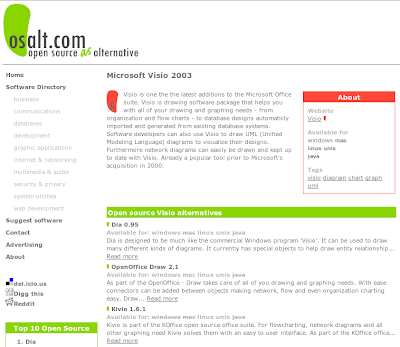The ethics of Linux hardware appliances
Recently my organization has been looking into purchasing DNS/DHCP/IPAM hardware appliances. This category includes products from InfoBlox, BlueCat, MetaInfo, and INS.
It turns out that all of these appliances are running a version of Linux, and they are using open source applications. In fact, some of the vendors proudly admit that they "start with ISC's Bind and DHCP" and then make improvements to them.
When I heard these facts, I immediately asked them if they released the source-code to their appliances. They explained that there is no legal requirement for them to do so. Lucky for them, ISC uses the BSD license. But they also are shipping Linux, so shouldn't they have to redistribute the source for that?
Tivo publishes the source code to the GPL code that they modify. Perhaps the Linux-appliance vendors are not modifying any GPL code. I must assume that they are not legally required to distribute the source, based on the fact that I am not a lawyer and I am sure that they have a herd of them.
This is a really big issue, if you consider that there are dozens of Linux-based hardware appliances.
OK, put aside for a moment the legal issues of using open source software in a hardware appliance. I also want to address the ethical implications of using open source software in your commercial appliance. If you use open source in your product, do you believe that there is a moral obligation to contribute back to the communities that developed the code? I certainly do! If not, then this is a modern-day version of the Little Red Hen.
Does this issue bother anyone else? Is this something that the GPLv3 is going to address?
It turns out that all of these appliances are running a version of Linux, and they are using open source applications. In fact, some of the vendors proudly admit that they "start with ISC's Bind and DHCP" and then make improvements to them.
When I heard these facts, I immediately asked them if they released the source-code to their appliances. They explained that there is no legal requirement for them to do so. Lucky for them, ISC uses the BSD license. But they also are shipping Linux, so shouldn't they have to redistribute the source for that?
Tivo publishes the source code to the GPL code that they modify. Perhaps the Linux-appliance vendors are not modifying any GPL code. I must assume that they are not legally required to distribute the source, based on the fact that I am not a lawyer and I am sure that they have a herd of them.
This is a really big issue, if you consider that there are dozens of Linux-based hardware appliances.
OK, put aside for a moment the legal issues of using open source software in a hardware appliance. I also want to address the ethical implications of using open source software in your commercial appliance. If you use open source in your product, do you believe that there is a moral obligation to contribute back to the communities that developed the code? I certainly do! If not, then this is a modern-day version of the Little Red Hen.
Does this issue bother anyone else? Is this something that the GPLv3 is going to address?


First off, even though we disagree sometimes, I love your blog. Thanks.
ReplyDeleteI agree that many hardware appliance makers are doing un-ethical things (ahem! Tivo), however, there are many that do understand what Free Software really means (http://www.astaro.com/).
IMHO, Any appliance vendor is required to make available source code for any Free Software included, including any modifications they may have made. This doesn't mean that it must come with a CD, but it could be that they just have a link to download it somewhere on their site.
I think some of these vendors feel they can get away with not providing source because they are distributing hardware, and not software. The GPLv2 is a bit vague on the definition of distribution. The GPLv3 is planned to clarify this.
Ethically, If you are going to take advantage of Free Software, you should also follow the spirit of the movement, not just the letter of the law.
Their is nothing un-ethical about Linux based appliances. If you write an application in PHP or another open source language then you are not bound by the GPL. If however you modify the source code of a GPL application you are bound by the GPL. It is quite easy to build an appliance from open source components, slap a nice interface on it and sell it on a commercial basis without breaking the GPL and their is nothing wrong with that. It is similar to the argument that RedHat Enterprise Linux is made up from GPL software and therefore should be free! No they just have to release source for any code the have modified. Their is nothing stopping any one writing new code (even if they use open source tools) under any licence they choose, that is one of the freedoms the GPL is designed to protect and I think its working incredibly well.
ReplyDeleteMalcolm,
ReplyDeleteI agree that there is nothing legally wrong with using open source software, and creating something on top of it.
What I am saying, is that these companies have an ethical responsibility to contribute back to the open source projects they use. It is not a legal requirement, but I would hope any potential customers would hold them to this standard.